This article needs additional citations for verification .(February 2024) |
The Academia Mexicana de la Historia (Mexican Academy of History, also known by the acronym AMH), is a national academy in Mexico, which promotes history in Mexico.
This article needs additional citations for verification .(February 2024) |
The Academia Mexicana de la Historia (Mexican Academy of History, also known by the acronym AMH), is a national academy in Mexico, which promotes history in Mexico.
While Antonio López de Santa Anna issued mandates to establish a Mexican national academy for history in 1835 and 1854, the first successful attempt to establish the academy began during the revolutionary period. Discussions began while Victoriano Huerta was still in power, the academia was finally established in 1919, after Venustiano Carranza assumed the presidency of Mexico. [1]
The purpose of the academy is to promote historical studies within Mexico, conduct research into all aspects of the history of Mexico, and to contribute towards the preservation of the national cultural heritage. It is a correspondent academy to the Real Academia de la Historia in Madrid, the equivalent national academy of history in Spain.
The AMH was formally constituted on September 12, 1919, after several previous attempts to form such a body had not come to fruition. Originally the AMH was established with 24 positions or numbered chairs (sillones de número) for full members (académicos de número). In 1990 this number was increased to 30, made up of 22 members resident in Mexico City (miembros residentes) and 8 external members from the Mexican states (miembros foráneos). In addition, there are a number of correspondent members (corresponsales) from both within Mexico (corresponsales nacionales) and from other countries (corresponsales extranjeros).
AMH may refer to:
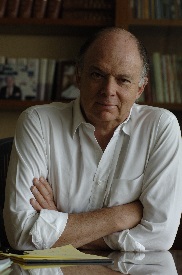
Enrique Krauze Kleinbort is a Mexican historian, essayist, editor, and entrepreneur. He has written more than twenty books, some of which are: Mexico: Biography of Power, Redeemers, and El pueblo soy yo. He has also produced more than 500 television programs and documentaries about Mexico's history. His biographical, historical works, and his political and literary essays, which have reached a broad audience, have made him famous.
Edmundo O'Gorman was a Mexican writer, historian and philosopher. He is considered as being among the earlier and most influential applicants of historical revisionism to commonly held narratives regarding the Spanish colonial period in Latin America.

The Real Academia de la Historia is a Spanish institution in Madrid that studies history "ancient and modern, political, civil, ecclesiastical, military, scientific, of letters and arts, that is to say, the different branches of life, of civilisation, and of the culture of the Spanish people". Spanish people in this regard are understood to be citizens of the Kingdom of Spain or the indigenous people of its predecessors, or their descendants. The academy was established by royal decree of Philip V of Spain on 18 April 1738.
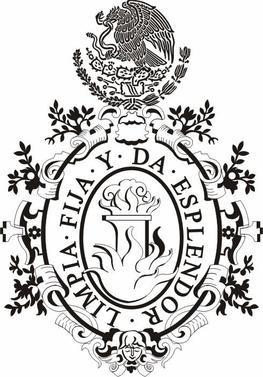
The Academia Mexicana de la Lengua is the correspondent academy in Mexico of the Royal Spanish Academy. It was founded in Mexico City on 11 September 1875 and, like the other academies, has the principal function of working to ensure the purity of the Spanish language. Academy members have included many of the leading figures in Mexican letters, including philologists, grammarians, philosophers, novelists, poets, historians and humanists.

The Academia Dominicana de la Lengua is the Dominican Republic's correspondent academy of the Royal Spanish Academy. It was founded in Santo Domingo on 12 October 1927 and, like the other academies, has the principal function of working to regulate the Spanish language.
Francisco de Borja del Paso y Troncoso was an important Mexican historian, archivist, and Nahuatl language scholar. He "was and remains the outstanding major Mexican investigator of his era, a fully accepted figure in the international group of his peers."
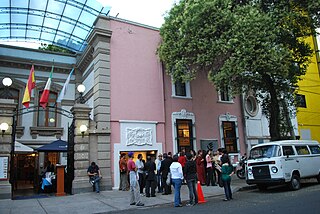
Salón de la Plástica Mexicana is an institution dedicated to the promotion of Mexican contemporary art. It was established in 1949 to expand the Mexican art market. Its first location was in historic center of the city but today it mostly operates out of a building in Colonia Roma. The institution is run by a membership of almost four hundred recognized artists and holds multiple exhibitions each year. Although it operates autonomously, it is part of the Instituto Nacional de Bellas Artes y Literatura.
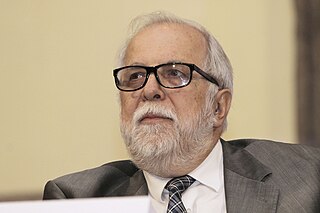
Francisco Javier Garciadiego Dantán is a Mexican historian specialized in the Mexican Revolution who formerly served as president of El Colegio de México. He is a former director-general of the National Institute of Historical Studies on the Mexican Revolutions (INEHRM), has authored several books and holds the 12th seat of the Mexican Academy of History, where he substituted the late Beatriz de la Fuente.

The Academia de Genealogía y Heráldica Mota-Padilla was a cultural institution based in Guadalajara, Jalisco, the second largest city in Mexico. According with an article published in the Genealogical Journal (1971), this institution was the first genealogical association in Latin America.

Leonardo Náuhmitl López Luján is an archaeologist and one of the leading researchers of pre-Hispanic Central Mexican societies and the history of archaeology in Mexico. He is director of the Templo Mayor Project in Mexico's National Institute of Anthropology and History (INAH) since 1991 and son of renowned historian Alfredo López Austin. He is fellow of El Colegio Nacional, the British Academy, the Society of Antiquaries of London, the Real Academia de la Historia in Madrid, the American Academy of Arts & Sciences, the Archaeological Institute of America, and the Académie des Inscriptions et Belles-Lettres in Paris.
Desiderio Hernández Xochitiotzin was a Mexican artist best known for his large-scale mural work inside the State Government Palace in the state of Tlaxcala, Mexico, the last large scale mural of the Mexican muralism movement.

Los Hijos del Averno was the most well known name of a Mexican professional wrestling group, called a stable in the Mexican Lucha Libre promotion Consejo Mundial de Lucha Libre (CMLL). The group was originally formed in 2006 under the name La Triadad del Terror and has also been briefly known as Los Jauria del Terror. In 2015 the group was renamed Los Hijos del Infierno and currently consists of Mephisto, Ephesto and Luciferno and works as a rudo faction. The group was led by Averno, whom the group was named after, until Averno left CMLL in 2014.
Tarsicio Herrera Zapién is a Mexican writer, researcher and academic, specializing in the culture and classical literature. He studies the works of Sister Juana Inés de la Cruz, as well as music composition and recovery of classical musicological works.

The Equatoguinean Academy of the Spanish Language is an association of academics and experts on the use of the Spanish language in Equatorial Guinea, a republic in Central Africa in which Spanish is the national official language. Equatoguinean Spanish is the particular variety of Spanish spoken in the country. Since 19 March 2016, Equatorial Guinea has been a member of the Association of Spanish Language Academies.

José María Luis Mora Lamadrid was a priest, lawyer, historian, politician and liberal ideologist. Considered one of the first supporters of liberalism in Mexico, he fought for the separation of church and state. Mora has been deemed "the most significant liberal spokesman for his generation [and] his thought epitomizes the structure and the predominant orientation of Mexican liberalism."

David Anthony Brading FRHistS, FBA, is a British historian and Professor Emeritus of Mexican History at the University of Cambridge, where he is an Emeritus Fellow of Clare Hall and an Honorary Fellow of Pembroke College. His work has been recognized with multiple awards including the Bolton Prize in 1972, the Order of the Aztec Eagle, and the Medalla 1808—both of which were awarded by the Mexican government—and the Medal of Congress from the Peruvian government in 2011.
María del Carmen Millán (1914–1982) was a Mexican academic, writer and lecturer who became the first woman admitted to the Mexican Academy of Letters. Her work to preserve the literary heritage of Mexico was recognized both internationally and nationally.
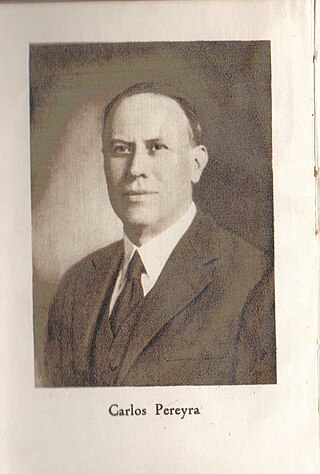
Carlos Hilario Pereyra Gómez was a Mexican lawyer, diplomat, writer and historian. His background was highly influenced by late 19th century Positivism, so this influence is denoted in his works. He was also a Hispanist, defender of the historical and cultural legacy of Spain in Spanish America and critic of the American Interventionism policy in Latin America.